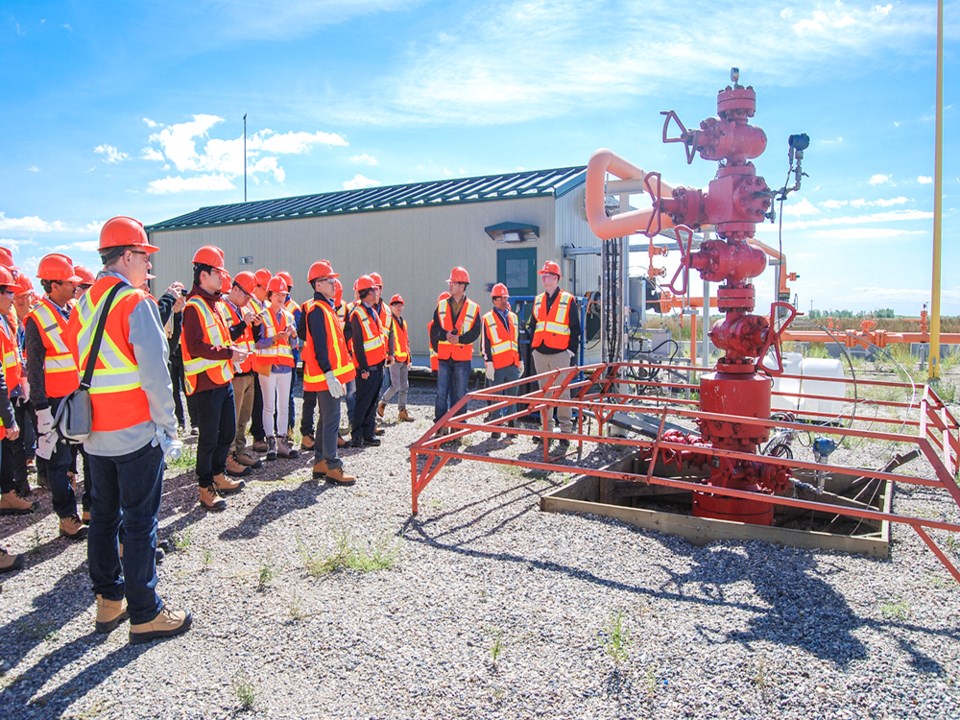Interest in the carbon capture and storage (CCS) technology at Boundary Dam and Shand Power Stations continues to grow, as SaskPower hosts an increasing number of guests, all of whom are looking to learn more about the first-of-its-kind post-combustion coal carbon capture technology.
On Sept. 11, Estevan was host to a group of international delegates looking to learn more about how it all works. Over 170 people from 21 countries came to Boundary Dam and Shand power stations, touring the carbon capture project at the former, and carbon capture test facility, at the latter. Guests also toured the Aquistore carbon storage and research centre near the two stations, where extracted CO2 is injected into the ground and monitored.
The tour of the facilities was related to the International Energy Agency Greenhouse Gas (IEAGHG) Post-Combustion Capture Conference (PCCC3), a gathering that took place in Regina to focus on the study and discussion of CCS technology and research, as well as their commercial and industrial applications.
In conjunction with the two-day conference, SaskPower ran its third annual CCS Symposium, the day after, which included the tour of the carbon capture facilities in Estevan.
“We talked about our experience, our vision and invited them out to see the project for themselves,” said Jonathan Tremblay, a strategic communications consultant with SaskPower.
The tour was the boots on the ground portion of the symposium, where guests were able to see the technology they had discussed in action. Guests were shown where the CO2 emissions from the burning coal are diverted to the carbon capture facility at Unit 3. Guests viewed the machinery that uses chemical solutions called amines to separate sulfur dioxide and carbon dioxide from emissions, and the processes by which CO2 was diverted to pipelines and the sulfur dioxide was converted into sulfuric acid, which is sold for industry purposes.
A significant portion of the tour showed what becomes of CO2 sent into pipelines. Guests were shown the lines where CO2 used for the purpose of oilfield recovery is sent south of Weyburn, and the Aquistore facility onsite, where CO2 is injected into a layer of porous rock three kilometres underground, surrounded by layers of solid rock.
On the way to Estevan from Regina, the tour made a stop at the site of the CO2 enhanced oil recovery (EOR) project in Weyburn. The Weyburn site is where 28 million tonnes of recovered CO2 has been injected into oil-bearing formations to improve oil recovery.
“This conference was tagged to an international agency technical workshop concept that has a global following,” said Mike Monea, president of carbon capture and storage initiatives for SaskPower. “The conference and the follow-up plant tour in Estevan worked very well.”
Monea noted that the guests participating in the tour were all highly engaged with a surfeit of questions. Guests were largely lengineers and scientists, who work with various systems to capture carbon, themselves.
“We had our three engineers reporting to the conference on the BD3 facility, and how it was built and is functioning,” said Monea. “There were tons of questions. These people were hungry for information that only we could supply. The question and answer session was very impressive because there were so many questions.”




